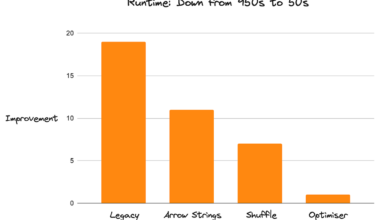Nuanced Know-How, How Data Analytics Can Be More Personalized

A Google Home smart speaker photographed on a kitchen counter, taken on January 9, 2019. (Photo by … [+]
People are special. Because individuals in many jobs can bring a deeply personal approach to the way they carry out tasks, we often recognize a human being’s subtly intelligent appreciation for the way a business transaction should be carried out, the way a service should be delivered or the way a product should be manufactured, crafted and created.
Software is special too, but traditionally we have not recognized digital entities for having any extended kind of nuanced appreciation for the way a task is done, especially if that piece of work is something mundane or below the surface of user-level interactions.
AI changes things
As we know, Artificial Intelligence is changing all those standards with predictive, reactive and now generative smartness that enables us to feel that a software service has a more perceptive understanding of what is going on around it. This particular ‘phenomenon’ is happening quite prevalently in the field of data crunching. As we have noted before, the use of software copilots to perform data analytics jobs is on the rise, so just how detailed are the next batch of these services going to be?
Data analytics company AnswerRocket thinks its approach to AI in this space will evidence a new degree of personalized perception that will take us to new places. The company recently detailed the arrival of its Skill Studio technology, a service which promises to help companies develop custom-built ‘AI analysts’ that are capable of interpreting an organization’s individual approach to data. This product comes after the firm’s initial foray into this space, a generative AI assistant service known as Max, but now with features for domain-specific analyses such as cohort and brand analyses.
The nuances of gaming
To understand the difference here when AI-powered data analytics is capable of really interpreting information in new ways, we can look at RallyHere Interactive, a platform for game developers to run multi-platform live service games. CEO Stewart Chisam says that with Skill Studio, his team has been able to create a customized ‘AI analyst’ (a virtual helper in the style of a technology copilot, not a real person) that deeply understands the nuances of the gaming industry and how his firm analyzes its data.
“Its ability to automate complex analyses like game performance, player interactions and usage patterns is groundbreaking. The insights generated can help drive strategic decisions to enhance both our platform and user experience,” stated an upbeat Chisam.
Specialized AI copilots
So far in the space we have seen AI copilots emerge as a tool for enterprises to access their data and streamline operations. But Alon Goren, CEO of AnswerRocket claims that existing solutions fail to meet the unique data analysis needs of each organization or job role.
“AI copilots have revolutionized the way organizations access their data, but current solutions on the market are general-use and not personalized to specific use cases,” said Goren. “Skill Studio addresses this gap by providing organizations with the ability to personalize their AI assistants to their specific business, department and role, which enables users to more easily access relevant, highly specialized insights.”
In terms of what’s in the product itself, Skill Studio key enhancements include what the company calls an end-to-end experience supporting the entire software development lifecycle for developers to gather requirements, develop, test and deploy ‘skills’ (here branded as Skills to denote an AI assistant product) to the AnswerRocket platform. Skill Studio allows software developers to use the Git (software code repository) provider and Integrated Development Environment (IDE) solution of their choice.
There’s a low-code User eXperience (UX) on offer here as well as reusable code blocks. Organizations can accelerate custom Skill development by using pre-built code blocks for analysis, insights, charts, tables and insights etc. Skill Studio also extends the analytical capabilities of the Max product, enabling firms to deploy their existing Machine Learning algorithms within the Max experience.
Multi-source & multi-modal data
Data analysts can perform complex analyses using multiple data sources (multi-source, multi-modal i.e. the former being information from more than one entity, the latter being data that comes in more than one form of modality… so perhaps images plus video plus text plus voice and so on), including structured or unstructured data through a single tool.
“This allows businesses to glean insights from siloed data sources that were previously inaccessible. Technical team members can democratize specialized data science algorithms and models as reusable Skills that can be leveraged by Max, enabling users to successfully retrieve the advanced answers they need quickly and securely. Business users can enjoy an easy-to-use experience for interacting with their data by chatting with an AI analyst who understands their business, analytical processes and insights needs,” notes AnswerRocket, in a technical product statement.
There’s a handful of logical and related software application development themes playing out here. As well as low-code and UX, we can see code re-use, multi-modal data capabilities and AI model flexibility… but perhaps more importantly, we can see the customizability of AI assistant copilot technology designed to straddle the nuanced differences of data that might exist in any given company.
As AI copilots start to get even more flexibly adept we will no doubt see them starting to chart a course through different industry use cases, let’s just keep a handle on any unwanted aerobatics, please.
TOPSHOT – Brazilian Air Force pilots on Super Tucano airplanes perform aerobatics during the F-Air … [+]



